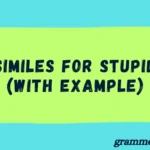When it comes to the spelling “Connector”or “Connecter,” the correct and most widely accepted form is “Connector.” It’s the standard spelling in both American English and British English, especially when referring to a device or component that links two things—like cables or systems. The word “connecter” is a rare alternative that you might find in older texts, but it’s not commonly used in modern grammar or technical writing.
In daily usage, “connector” refers to anything that joins, links, or bridges elements—whether in electronics, grammar, or social networks. If you’re writing professionally or academically, always stick with “connector” to ensure clarity and correctness. Understanding this minor spelling difference helps maintain grammar accuracy and avoids confusion in both technical and non-technical communication.
What Do “Connector” and “Connecter” Mean?
Both words, at first glance, appear to refer to something or someone that connects. But there’s a big difference when it comes to standard usage.
Definition of “Connector”
- Connector (noun): A device or person that connects two or more things together.
- Common contexts:
- Technology: e.g., HDMI connector, USB connector
- Grammar: e.g., conjunctions acting as sentence connectors
- Human interaction: someone who brings people together
Definition of “Connecter”
- Connecter is a nonstandard variant of “connector”
- Rarely seen in published works or formal writing
- Sometimes appears due to confusion with similar words ending in -er
Bottom line: “Connector” is the correct and widely accepted spelling. “Connecter” is outdated and largely incorrect in professional writing.
Connector vs Connecter: Which Spelling is Actually Correct?
The short answer? “Connector” is the correct spelling.
Let’s look at a few key sources that set the standard:
Dictionary Confirmation
| Dictionary | Entry Found for “Connector” | Entry for “Connecter” | Notes |
| Merriam-Webster | Yes | No | “Connector” listed as standard |
| Oxford English | Yes | No | No official listing for “connecter” |
| Cambridge | Yes | No | “Connector” is the recognized noun |
As shown, none of the major dictionaries recognize “connecter” as a standard word. That’s a strong signal to stick with “connector.”
Usage in British vs American English
While you might assume this is another UK vs US spelling issue (like “color” vs “colour”), it’s not.
Both British and American English use “connector.”
There’s no regional difference here—“connecter” simply isn’t the accepted form in either.
Why Did “Connecter” Fall Out of Favor?
The answer lies in how English forms nouns from verbs—specifically agent nouns.
An agent noun refers to a person or thing that does something:
- Teach → teacher
- Run → runner
- Connect → connector
But here’s the twist: In many Latin-derived English verbs, the agent noun ends with -or, not -er.
The -or vs -er Rule (Simplified)
| Verb | Correct Noun | Incorrect/Uncommon |
| Connect | Connector | Connecter (✘) |
| Direct | Director | Directer (✘) |
| Collect | Collector | Collecter (✘) |
The reason? Words like “connect,” “direct,” and “collect” trace back to Latin origins where the agent noun suffix was -or, and English carried that tradition forward.
That’s why we say:
- “He’s the director of the company.”
- “Use a connector to link the devices.”
Never “connecter” or “directer.”
The Etymology of “Connector”
Let’s dig into the linguistic roots for a clearer picture.
- Latin root: conectere — to bind together
- Middle English: connecten
- Modern English verb: connect
- Noun derived from verb: connector
The suffix “-or” was traditionally used in Latin-based verbs to form agent nouns. English preserved this pattern in formal and technical terms, especially those adopted in legal, scientific, or professional domains.
This also explains why connector is the term seen in industries like:
- Engineering
- Telecommunications
- Computer hardware
- Linguistics
Confusing Pairs: Other Examples Like Connector vs Connecter
You’re not alone if you find “connector” vs “connecter” confusing. English is full of similar word pairs where one is correct, and the other looks right—but isn’t.
Let’s compare:
| Verb | Correct Agent Noun | Incorrect Variant |
| Connect | Connector | Connecter |
| Direct | Director | Directer |
| Invent | Inventor | Inventer |
| Act | Actor | Acter |
| Collect | Collector | Collecter |
Notice the pattern? Words ending in -ect, -ct, and -ent usually turn into nouns ending in -or—not -er.
If you follow this rule, you’ll avoid a ton of spelling mistakes in formal writing.
What Dictionaries and Style Guides Say
Let’s look at what style guides and trusted references say about using “connector.”
Dictionary Insights
- Oxford English Dictionary: “Connector – a device for making and breaking connections.”
- Merriam-Webster: Lists “connector” and not “connecter”
- Cambridge Dictionary: Defines “connector” as a “device used to join electrical equipment.”
No major dictionary supports “connecter.” In fact, typing it into many digital tools triggers a spelling correction.
Style Guide Rules
- Chicago Manual of Style: Prefers standard spellings as recognized by major dictionaries—connector is the only correct form
- AP Stylebook: Follows Merriam-Webster as default—again, “connector” only
Takeaway: If you’re writing professionally, academically, or for publication—“connecter” is a red flag.
Real-World Examples of “Connector” in Use
Here’s how “connector” appears in real contexts across different industries:
In Technology
“Plug the HDMI connector into the TV’s input port.”
In Engineering
“Use a T-type connector for branching pipe networks.”
In Language and Grammar
“‘However’ acts as a connector between two independent clauses.”
In Networking
“RJ45 is the most common Ethernet connector.”
In all these examples, “connector” is precise, technical, and standard. Using “connecter” would weaken credibility or sound incorrect.
Synonyms of the Word “Connector”
Depending on the context, you can swap “connector” with several similar words.
Here’s a handy list:
| Synonym | Meaning | When to Use |
| Link | A general connection | Abstract or metaphorical use |
| Coupler | Device that joins two parts | Engineering, mechanical fields |
| Joint | A place where two things meet | Plumbing, mechanics |
| Interface | Point of interaction | Tech, software, communication |
| Bridge | Structure or element joining two sides | Figurative or digital contexts |
However, none of these are perfect replacements for “connector” in all situations. Use them thoughtfully depending on the audience and purpose.
Quick Reference Table: Connector vs Connecter
| Term | Correct? | Common Use Cases | Should You Use It? |
| Connector | Yes | Tech, grammar, networking, tools | ✔ Always |
| Connecter | No | Rare typos, informal misspellings | ✘ Avoid completely |
Helpful Tip: Add “connector” to your writing tool’s dictionary. Mark “connecter” as incorrect if your software allows it. This can prevent accidental errors.
Conclusion:
In the debate between “connector” and “connecter,” the answer is clear: “connector” is the correct, modern, and widely accepted spelling in both American and British English.
Whether you’re referring to a device that links hardware, a grammatical element that ties ideas together, or a metaphorical bridge between people or systems, “connector” is the form recognized by dictionaries, supported by style guides, and favored in professional communication.
Using outdated variants like “connecter” may weaken the credibility of your writing or confuse readers. By choosing “connector,” you align with current language standards and ensure clarity across contexts. Language evolves—but accuracy never goes out of style. When in doubt, stick with what’s correct, widely used, and trusted: connector.
FAQs:
1. What is a connecter?
A connecter is an outdated or less common spelling of connector. While it carries the same meaning—a device or word that joins things together—it is rarely used in modern English and is not considered standard.
2. What is called a connector?
A connector refers to something that links or joins two or more elements. This could be a physical device like a cable plug, or a grammatical tool like a conjunction that links parts of a sentence.
3. What is the difference between connector and connection?
A connector is the object or person that links things, while a connection is the state or relationship of being linked. For example, a USB plug is a connector; the data transfer is the connection.
4. What is a connector?
Yes, in grammar, the word “what” can sometimes act as a connector in indirect questions or relative clauses (e.g., “I heard what she said”), though it’s not a primary linking word like “and” or “but.”
5. What is a connector word?
A connector word is a linking term used in grammar to join ideas, clauses, or sentences. Examples include and, but, because, however, therefore, and meanwhile. These help improve flow and coherence in writing.

Mia Rose is the grammar enthusiast and content creator behind GrammerHome.com, where she brings clarity to the often-confusing world of English grammar. With a strong background in language education and a passion for helping others, Mia’s writing style blends simplicity, depth, and a touch of charm.




